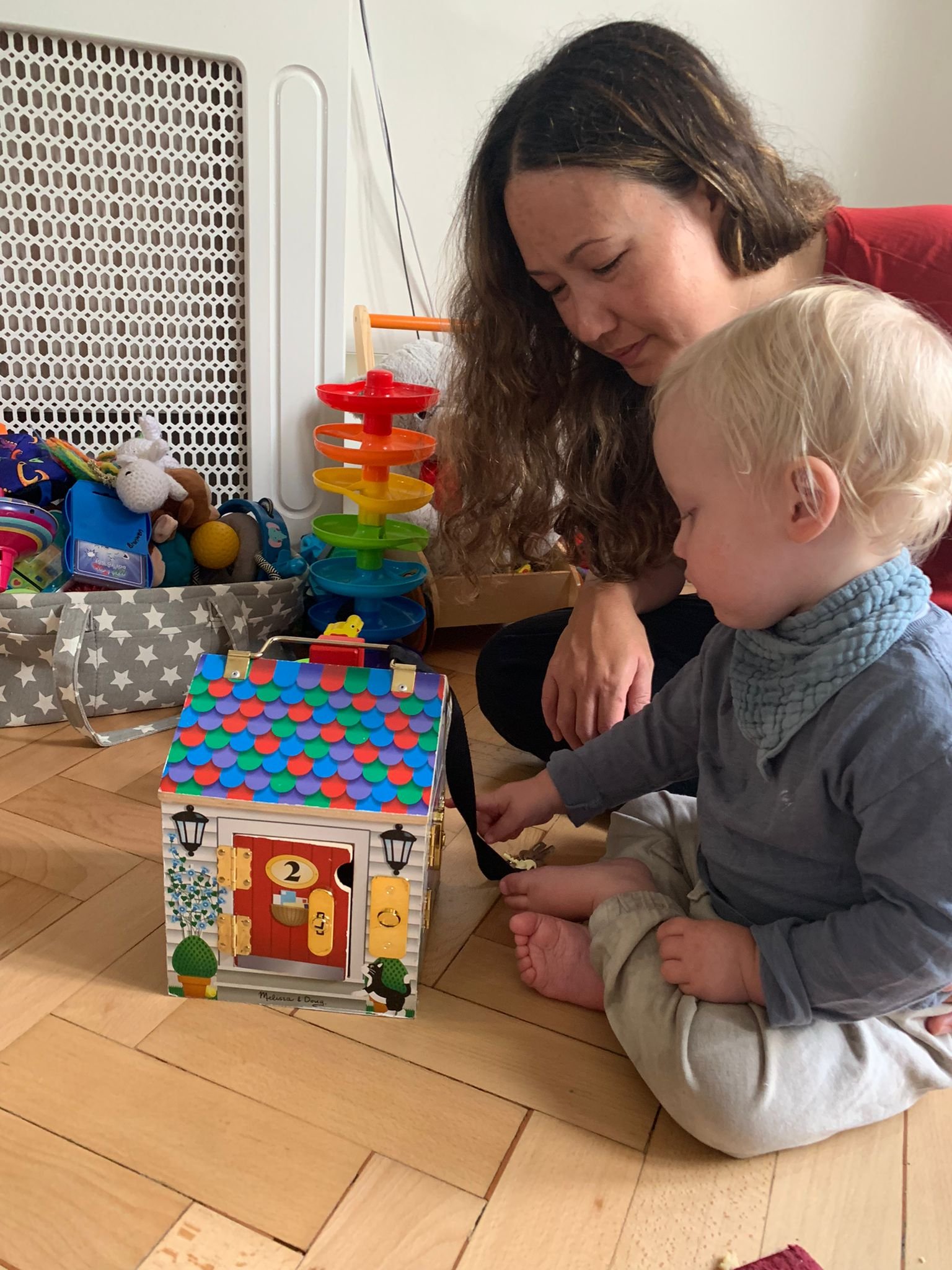I moved our business to a 4-day work week… am I crazy or are you jealous?
By Jenn McGarrigle, CEO and Co-founder, Cyd Connects
In February 2021, I gave birth to my second baby. At that point I had made the decision to quit my job and say adios to my steady monthly income. But I believe everything happens for a reason. Just before I gave birth, an old colleague started talking to me about setting up a sustainability consultancy that would help businesses become a force for good… and as they say, the rest is history.
I took a lovely 4 months off with my newborn, River, and started zooming with my two business partners, laying the foundations of what would become our start-up, Cyd Connects. Cyd is an old family name of my two business partners (they’re cousins) and it symbolises the strong women from past generations who stood up for positive change and paved the way for us. I took the position of CEO, finally reaching the goal I set for myself when I was 16 years old – the goal that people often laughed or rolled their eyes at when I told them. So, before I get to my point, let me say this out loud: women can be CEOs and we should be encouraging and lifting them every step of the way.
By this point you’re probably thinking, ‘great, what does this have to do with a 4-day work week?’ A lot actually. When I set up my business with Aisling and Mica, we agreed that we would do business differently - be the example, be the change. And let’s be frank, the way we work now is not working for women (or anyone, if we’re really honest with ourselves). Unfortunately, society has not reached gender equality, and often the pressure of homemaking and caring for children still heavily sits with women, both physically and mentally. A 2021 study from McKinsey and Leanin.org, reported that one in three women has considered leaving the workforce or downshifting their career due to burnout, stress and exhaustion. As a mother of a toddler and a five-year-old, I understand the pressures that women feel every day - even with my husband taking on 50% of the home responsibilities.
So, back to the 4-day work week question. It really started from a selfish place – juggling two small children, home responsibilities, both of us working full-time (often putting in over 40hrs per week) plus all the kid's sick days, made building a business feel impossible sometimes. A lot of times. But when I stepped back, I could see the bigger picture. There are millions of mothers (and fathers) around the world feeling the same. Something needs to change. And how is that change going to happen if we don’t set the example. So, I told my partners, I want to move us to a 4-day work week - not only to improve flexibility, but overall work-life balance and mental health for us all. Also, from the studies I read I felt this could be an opportunity to improve productivity and employee engagement.
Now, when I took this idea to my business partners, I thought I would be met with cheers and celebration, but actually, they were a little doubtful and trepidatious. We’ve been conditioned, almost cult-like, by our backgrounds in big corporates to believe putting in 5 days, 40hours (and usually more) per week is the only way. When I asked my business partners, why is a 4-day work week not possible? They threw a few things out there like ‘what if a client calls’ or ‘when will we find time to meet’ and ‘how can we possibly fit all our work in 4 days when we’re already at capacity’. There were some valid points, but I asked them to really dig deep and make sure these were truly valid reasons. Were they really concerned with these things or was it coming from a place of fear? And how will we ever know if we don’t try? They got on board after that, albeit reluctantly, and we started our trial in February 2022.
Now it wasn’t all rainbows and skipping into the sunshine after that – we needed to figure out how we actually do this. Do we all take the same day off? Do we take off different days? What day do we start, I mean, I’ve got meetings in for the rest of the month?! We talked through all these questions, and more, but in the end, we reminded ourselves why we were doing this. It was to give women more flexibility in the workplace – so the answer had to be to let people choose the day they take off. Now the start date allowed for that old friend ‘avoidance’ to come in. We had all signed up but that didn’t mean the fear wasn’t there. ‘I can’t start that week, I’ve got meetings booked on my day off’ said one of my partners. ‘I have meetings every day for the next two weeks, so I have no idea when I can start’. I responded, ‘I’m starting the week commencing 16th Feb, I would encourage you to rearrange your calendar to ensure you can do the same.’
After a couple weeks we got into the flow, they finally started taking their ‘day off’ and we haven’t looked back since. After a month my business partner Aisling said it’s revolutionised her life, and I have to agree. I take every Tuesday off and have my 1-year-old son at home with me - and for me, that day off gives me a chance to regroup, enjoy time with my children and allows my brain some space to think differently. It also means that when I return to work I’m feeling positive, motivated and ready to go. In terms of planning our weeks, the 4-day work week forces us to prioritise, cut out bullsh*t and set some boundaries. And listen, it’s not always perfect – occasionally I have to switch days to make meetings work or do the odd urgent task on my normal day off, but that genuinely only happens on rare occasions.
Now, what are you waiting for? I know, I know… the timing isn’t right, your business just doesn’t work like that and there is no way you can make it work for your role. My challenge to you is this: you won’t know until you try. So again, what are you waiting for?









